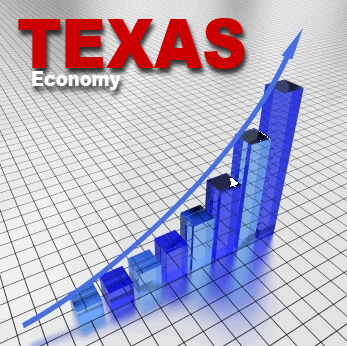Doing Business in Texas: Intro (Part 1)
This is the first installment of a new series by Reidel Law Firm outlining the basics and highlights of Doing Business in Texas. As an international business hub, it is important for businesses and their owners to be aware of the advantages and benefits of doing business in and with Texas. We will guide you through all the typical questions and concerns when starting a new business in Texas, from regulations to taxation to labor. Look for future installments at ReidelLawFirm.com.
What is Texas?
Texas is located in the southwest part of the United States. Texas is the second largest U.S. state by both area and population. Texas encompasses a large area, over 260,000 square miles, with widely varying climates and geography.
In the south (1), along the Gulf of Mexico, is characterized by a coastal grassland or swampy geography. This area includes about 700 miles of coastline and 11 deep water ports. The coastline is also a major hub of oil transportation and refining with major centers including Houston, Texas City, Port Arthur, Freeport and Brownsville.
In the east (2) of the state large piney wood forests are the dominant feature. These piney woods have provided a major source of lumber and jobs since Texas was settled.
The north central part of Texas (3), is in the lower limits of the Great Plains feature of the United States. Dallas is the major city (metro population over 6 million) along the low rolling hills and plains. This is a major financial, banking, and corporate center for the U.S.
In the high plains of the panhandle in the north part of Texas (4) is an epicenter for agriculture. It is also one of the fastest growing wind generated power centers for the high steady winds associated with the plains.
Below the panhandle is the beautiful and rapidly growing hill country of Texas (5). The capital of Texas, Austin, is located here and is one of the fastest growing cities in the county. Being centrally located and access to major interstates (I-10 & I-35) it is a popular tourist destination. Austin is already a world renown music and arts center and has a growing tech industry.
West Texas is a lightly populated but large area of land that includes mostly arid and semi-arid lands (6). The economy is driven mostly by livestock and petroleum production. The major city is El Paso, on the border with Mexico.
Last is the Rio Grande valley region of Texas (7). This area is a large flood plain of generally dry or semi arid land. Due to the major public water projects along the river, the area has become dominated by agribusiness and farming.
Business Climate
Texas is at the top of nearly all “most business friendly” lists in the US. Texas stays competitive in both the world stage and within the US by low taxation, low labor costs, and a large (and growing) economy. Texas would be ranked as the 12th largest economy in the world if it was its own nation. There are 52 Fortune 500 companies headquartered in Texas, including Exxon (#2), Phillips 66 (#6), AT&T (#11), and Sysco (#63).
In 2014, Texas led the nation in job creation with nearly 460,000 new jobs created. Even during the global recession between 2008 and 2010, Texas added over 200,000 jobs demonstrating Texas’ unique economic durability. With a labor force of 13 million and a population of 27 million, Texas has experienced rapid growth and considerably lower unemployment rate than the rest of the U.S. In 2013 and 2014, Texas residents were awarded over 30,000 patents from the U.S Patent & Trademark Office. Six of the top 25 largest cities in the U.S. are within Texas: Houston, San Antonio, Dallas, Austin, Fort Worth, and El Paso.
Texas lead the nation in exports with almost $300 billion in goods being shipped last year. Top global trade partners of Texas are Mexico ($102 billion), Canada ($31 billion), Brazil ($12 billion), China ($11 billion), and the Netherlands ($9 billion). Texas imports totaled just over $300 billion for 2014. Texas remains a one of the best destinations for foreign direct investment with the second largest number of U.S. subsidiaries of global companies.

Taxes remain some of the lowest in the U.S. with no personal or corporate income tax, a low sales tax, and a flat 1% business tax (called the franchise tax) on businesses with revenue over $1 million. The state also does not levy a statewide property tax, property taxes are levied at the local level allowing for greater taxpayer power in how they are taxed. Sales taxation is capped at a maximum rate of 8.25% depending on local sales taxes are levied.
Texas has a minimum wage that is the same as the federally mandated minimum wage. Texas is both a right-to-work and an employment-at-will state. Meaning that employees are not forced to join unions as a condition of employment and that employees may quit or be discharged without liability for any reason at any time, respectively. This allows a balance between workers and employers as they have the freedom to choose whether to be employed or to employ others.
In our next installment Intro: Part 2, we will explore the excellent infrastructure and education that positions Texas as one of the best places for business in the world. For more information about starting your business in Texas and a free legal consultation for your business use the contact form below or call Reidel Law Firm at (832)510-3292.



